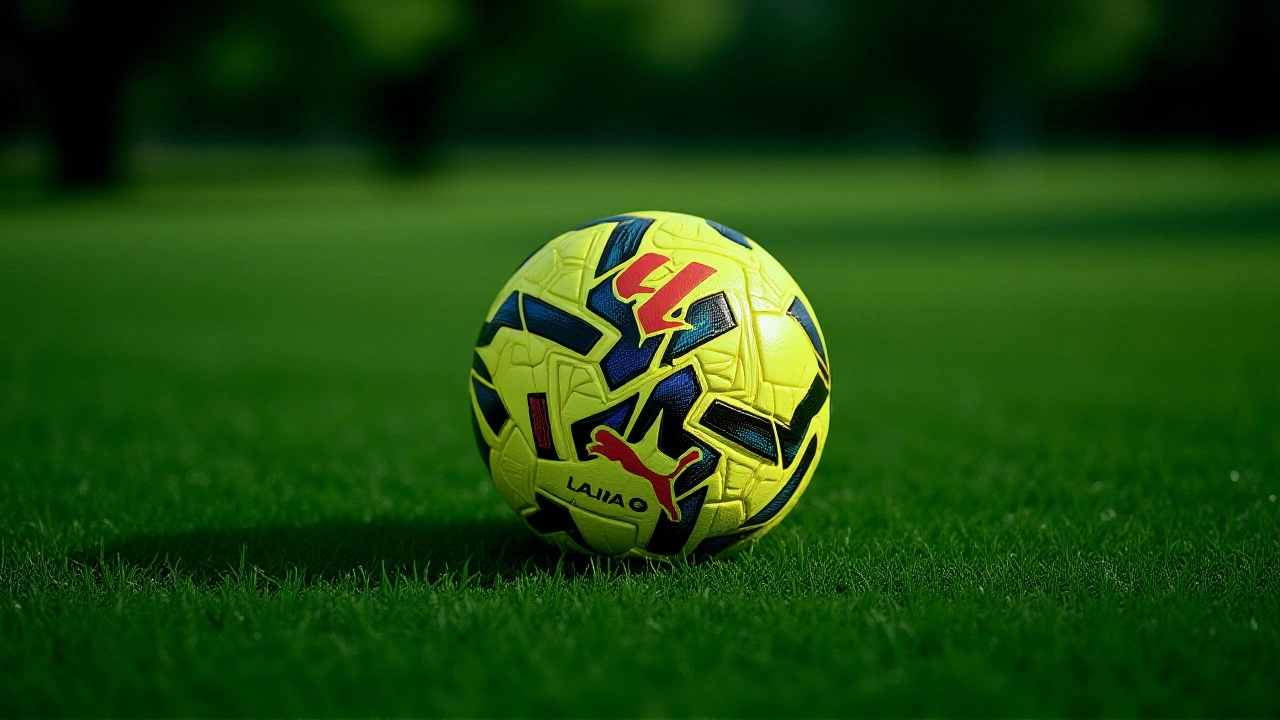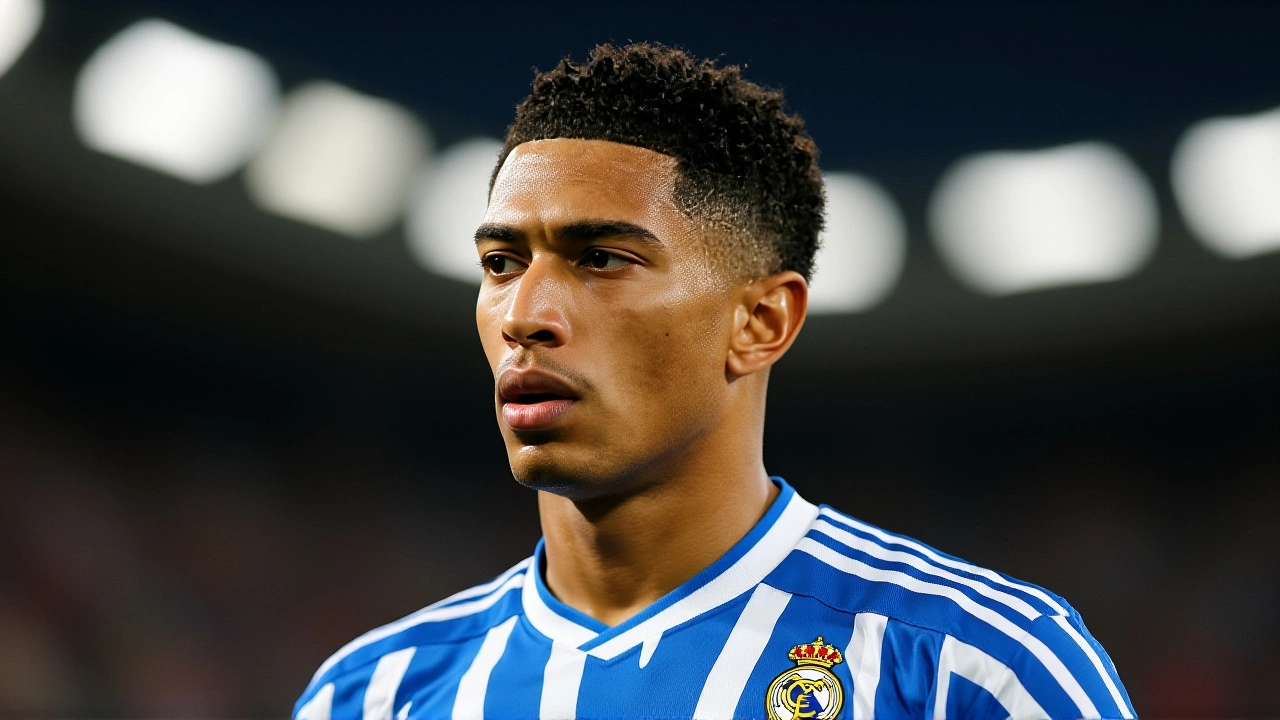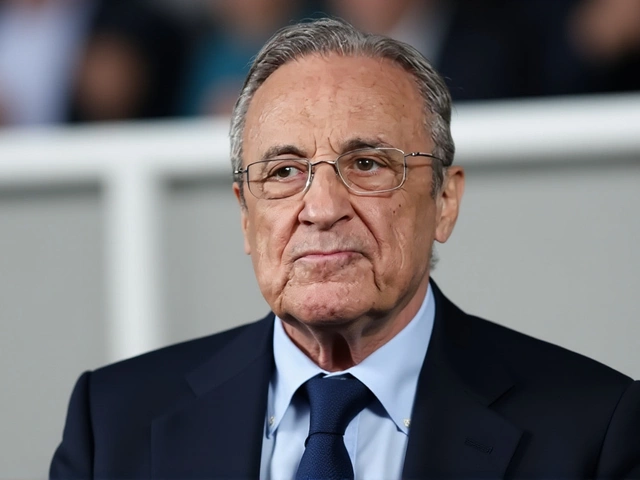When Florentino Pérez Rodríguez stood before 93,133 Real Madrid Club de Fútbol socios at the Santiago Bernabéu Stadium on November 23, 2025, he didn’t just present financials—he dropped a bombshell. "I made a monumental mistake," he said, his voice heavy with a rare vulnerability. The admission came just hours after the club publicly apologized for a horrifying error in a tribute video during a La Liga match: a segment falsely claiming Portuguese stars Diogo Jota and André Silva had died in a car crash. Both players, of course, are very much alive—Jota at Liverpool, Silva at RC Lens. The mistake wasn’t just a technical glitch. It was a moral failure.
The Tribute That Never Was
Real Madrid’s communications department issued a terse but unequivocal apology: "We deeply regret the error in our tribute video and extend our sincerest apologies to Diogo Jota, André Silva, their families, and all fans." The video, reportedly shown during a home match in late November 2025, featured footage of the two forwards with somber music and black-and-white filters—complete with fake obituary text. Fans in the stands gasped. Portuguese social media erupted. #RealMadridApology trended globally within minutes. The club’s internal production team, responsible for matchday content, has been suspended pending review. No one has been fired yet—but insiders say the blame is being traced to a junior editor who mistook a placeholder file for the final cut. It’s the kind of error that shouldn’t happen in 2025, not at a club with Real Madrid’s resources.
Pérez’s Thunderous Admission
But the apology wasn’t the only thing shaking the Bernabéu that Sunday. Pérez, in his 25th year as president across two terms, delivered what managingmadrid.com called "one of the most forceful speeches of his presidency." He didn’t just apologize for the video—he condemned the state of Spanish football itself. "What is happening in Spanish football is not normal," he declared, his tone cutting through the silence. The crowd didn’t cheer. They listened. And they knew he wasn’t just talking about the tribute error. He was talking about refereeing, financial imbalance, and the slow erosion of competitive integrity. His words echoed the frustration of fans who’ve watched La Liga turn into a two-horse race between Real Madrid and Barcelona, while clubs like Atlético Madrid and Athletic Bilbao struggle to keep pace.
The Connection Nobody Wants to Acknowledge
Was the tribute blunder the "monumental mistake" Pérez referred to? The sources don’t confirm it outright. But the timing is too precise to ignore. The apology dropped on Monday. Pérez’s speech was Sunday night. The club’s PR team scrambled to contain the damage. And then Pérez, in front of the very people who own the club, owned it. That’s not how most CEOs operate. Most would blame the production crew and move on. Pérez didn’t. He didn’t need to name the error. Everyone in that room knew.

Who’s Really Affected?
Diogo Jota and André Silva didn’t just get a false obituary—they got a nightmare. Jota, a key player for Liverpool and a Portuguese national team regular, was reportedly shaken when his brother sent him a screenshot of the video. Silva, who’s been in strong form for RC Lens this season, told Portuguese outlet Record: "I didn’t know what to feel. Shock? Anger? Sadness for the families who might have seen it?" Real Madrid hasn’t reached out directly to either player. That silence speaks volumes. Meanwhile, Portuguese fans are calling for a boycott of the club’s upcoming matches. The damage isn’t just to reputation—it’s to trust.
What’s Next for Real Madrid?
There’s no public timeline for reform. No committee has been announced. No new video protocols have been released. That’s the worrying part. Real Madrid has spent decades building a brand as the most professional club in the world. This error, combined with Pérez’s uncharacteristic admission, suggests something deeper: maybe the machine is getting too big to control. The club reported €855.6 million in revenue last year. They’ve won 15 Champions League titles. But when your video department can’t tell a living player from a dead one, money doesn’t fix that.

Historical Context: Pérez’s Legacy on the Line
Pérez has been president since 2009, and before that from 2000 to 2006. He’s the architect of the Galácticos era—signing Ronaldo, Beckham, Zidane, Bale. He turned Real Madrid into a global empire. But his legacy now rests on more than trophies. It’s about integrity. In 2020, he oversaw the club’s first-ever fan-led investigation into corruption. In 2023, he pushed through a stadium renovation that cost €1 billion. But this? This is different. This isn’t about money or politics. It’s about basic human decency. And if Pérez’s "monumental mistake" isn’t followed by real change, his legacy won’t be remembered for the Champions League wins. It’ll be remembered for the day Real Madrid killed two men who weren’t dead.
Frequently Asked Questions
How did Real Madrid’s tribute video error happen?
According to internal sources, a junior video editor mistakenly used a placeholder file labeled "Tribute - DECEASED PLAYERS" during matchday production. The file, intended for a hypothetical future memorial, was never meant to be live. No double-checking protocol was followed, and the mistake went unnoticed until the video aired to 80,000 fans in the stadium and millions online. The club has since suspended its entire matchday content team pending review.
Why did Florentino Pérez call it a "monumental mistake"?
Pérez’s wording suggests he views the error as more than a technical slip—it’s symbolic. In a club that prides itself on precision, the false death announcement reflects a breakdown in values. Combined with his broader criticism of Spanish football, the admission implies systemic failure. He didn’t blame staff—he took ownership. That’s rare for a president of his stature, and it signals he sees this as a crisis of identity, not just operations.
Are Diogo Jota and André Silva taking legal action?
As of November 25, 2025, neither player has filed a lawsuit. Both have publicly stated they’re "focused on football," but their legal teams are reportedly reviewing options under Spanish defamation and emotional distress laws. Real Madrid’s apology, while public, has not included financial compensation or a personal statement from Pérez to the players—factors that could influence future legal decisions.
What’s the impact on Real Madrid’s sponsorship deals?
No sponsor has publicly threatened to pull out, but behind the scenes, several global brands—including Emirates and Emirates Airline, which sponsors the stadium—are reportedly reviewing their partnerships. One executive told Bloomberg: "We don’t do business with organizations that can’t get basic facts right. This isn’t just about a video—it’s about control." The club’s brand value, estimated at $6.1 billion by Forbes, could take a hit if the backlash grows.
Has Real Madrid ever made a mistake like this before?
Not on this scale. In 2017, the club mistakenly displayed a photo of a deceased fan during a tribute, but it was quickly corrected. In 2003, they aired a tribute to a former player who was still alive—though that was a photo mix-up, not a fabricated death. This is the first time in the club’s 123-year history that a live video tribute falsely announced the death of two active, high-profile athletes. The precedent is unprecedented.
What’s being done to prevent this from happening again?
Real Madrid has promised a "complete overhaul" of its digital content protocols, but no details have been released. Industry experts suggest implementing a mandatory three-person verification system for all tribute content, with external auditors reviewing templates. Some socios are now demanding an independent ethics committee be formed to oversee all fan-facing communications. Until then, trust remains fragile.

Write a comment